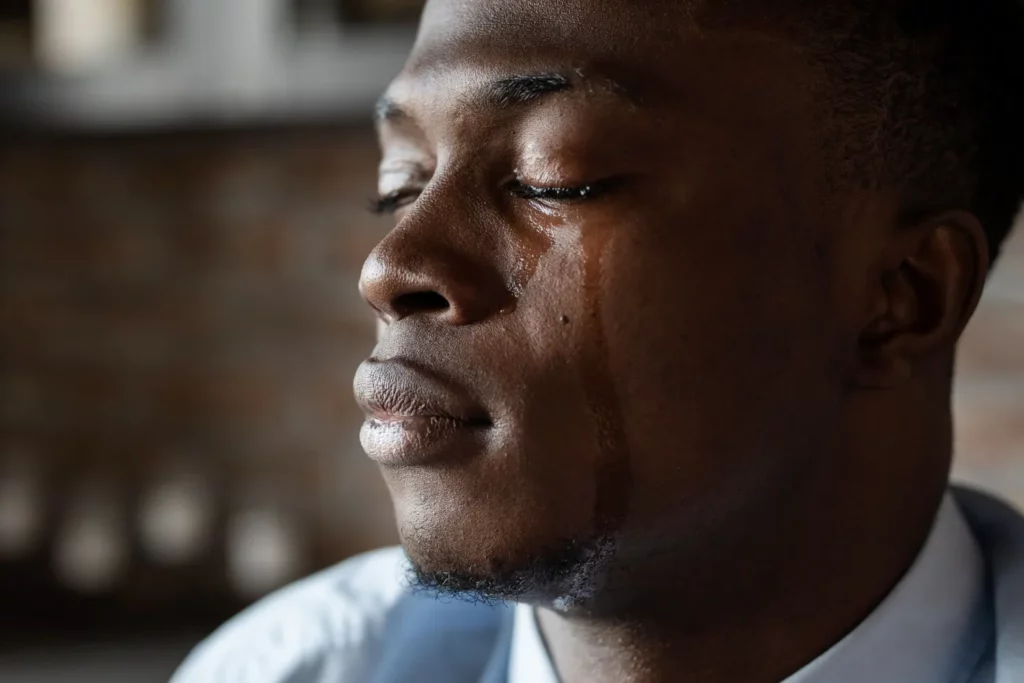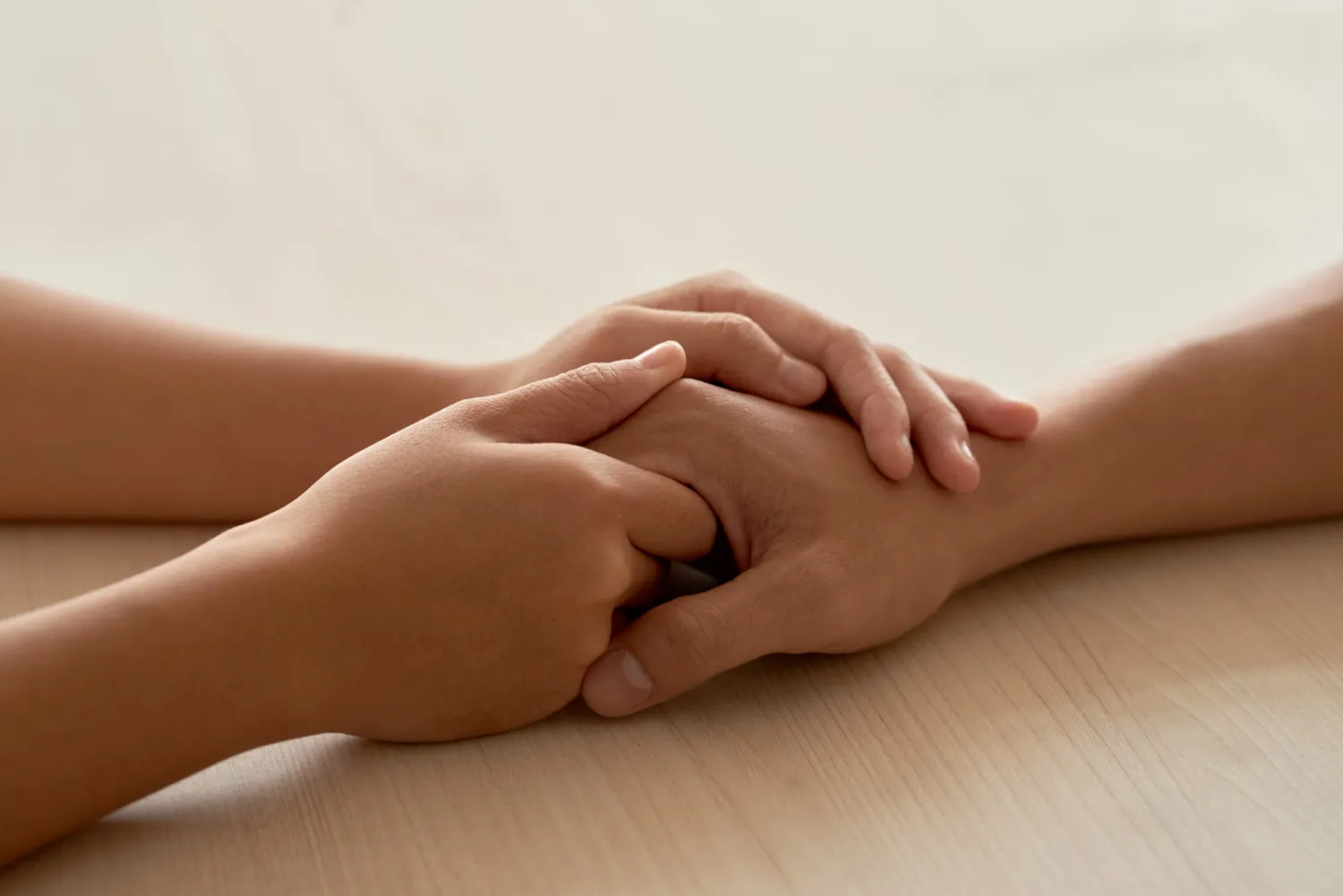Men Cry Too. The Healing Power of Vulnerability

“Crying does not indicate that you are weak. Since birth, it has always been a sign that you are alive.”
Unknown
Breaking Down in Order to Break Through
Three years ago, in rehab, I experienced something I never expected – I cried for the first time in a long time. It wasn’t just tears for the addiction or the lost years; it was a floodgate opening for everything I had buried deep. During my first grief counseling session, my psychologist asked a question that cut straight to the core: “What would your father think if he knew you were here?” The question felt like a blow. I wasn’t prepared for it. It triggered anger, sadness, and something I hadn’t allowed myself to feel for years: grief.
I cried for two hours straight as I blew my nose and spoke my pain. I cried for my father who was gone, my favorite uncle who passed that very year, I cried for all the years I spent holding onto that pain, and for the men I lost while trying to be strong. It was as if those tears washed away years of bottled-up emotions. I cried like a child longing for his father. And after that session, I slept the most peaceful sleep I had in years and woke up lighter.
Grieving What Was Lost
Recently, I watched a video of Tyrese crying as he opened up about his pain following his divorce. His vulnerability hit me hard because it made me realize something I had not fully processed: I wasn’t just grieving the death of my father – I was also grieving the end of my previous relationship.
I had never really allowed myself to mourn the separation from my ex, the mother of my two kids. I hadn’t recognized how deeply I was grieving the loss of the life we had built together, grieving the fact that I would no longer be waking up to my children in the same house. And then it hit me even harder: I wasn’t just grieving relationships, I was grieving my last job, my purpose, my sense of self.
In one of my support groups, someone said something that stuck with me: “Grief isn’t just about death. It’s about loss – the loss of love, of a future you imagined, of a role you once had.” That resonated deeply with me. I wasn’t only grieving my father. I was grieving the end of my relationship, the father I thought I’d be, and the man I once was.
Men Need to Grieve Too
I realized that men are often left out of the conversation when it comes to grief. Tyrese spoke about how men are often excluded when their partners suffer miscarriages or the family faces financial hardships, but men feel that pain too. Just like women, we grieve when relationships end, when we lose our jobs, when we miss out on key moments with our children. Yet, society tells us to bottle it up and stay strong.
That narrative is toxic. It’s unhealthy. Men should be allowed to cry, to mourn, and to feel without being judged. We don’t have to pretend that we are immune to the pain that comes with loss. We don’t have to shoulder it all in silence.
The Power of Vulnerability in Recovery
A few days after that breakthrough session in rehab, I stood before 27 men in recovery, sharing my story. I told them how I was missing my son’s second birthday because of where I was, how I felt ashamed and broken. To my surprise, these men – who had seen and lived through their own struggles – sang “Happy Birthday” to my son. It was the most heartfelt, off-key rendition of that song I’ve ever heard, and yet it was the most beautiful.
They weren’t just my fellow addicts. They were brothers, sharing in the pain and joy of recovery, acknowledging that I was a father trying to change. The next day, when I called my son on his birthday, that call was filled with more love and meaning than I ever could have imagined. I had found strength in my vulnerability, in crying, in letting others see my pain.
Call to Action: Let Men Feel, Let Men Heal, don’t invalidate them
It’s time to change the narrative. We need to create spaces where men can cry, grieve, and feel without fear of judgment. Let’s stop telling boys that crying is weak. Let’s stop excluding men or shutting them down from the conversations around grief, whether it’s about relationships, children, or work. We all feel pain. It’s time we all acknowledged it.
Ask the men in your life ‘how they’re really doing – and don’t let them off with “I’m fine.” (This was the centre of another article I wrote recently.) Dig deeper. Don’t leave them out of the conversation when families face loss. Create safe spaces at home, at work, on a train ride, wherever and whenever for them to express their emotions. Because vulnerability isn’t a weakness – it’s healing. And it’s time we allow men to start their journey to healing. I have begun mine.









